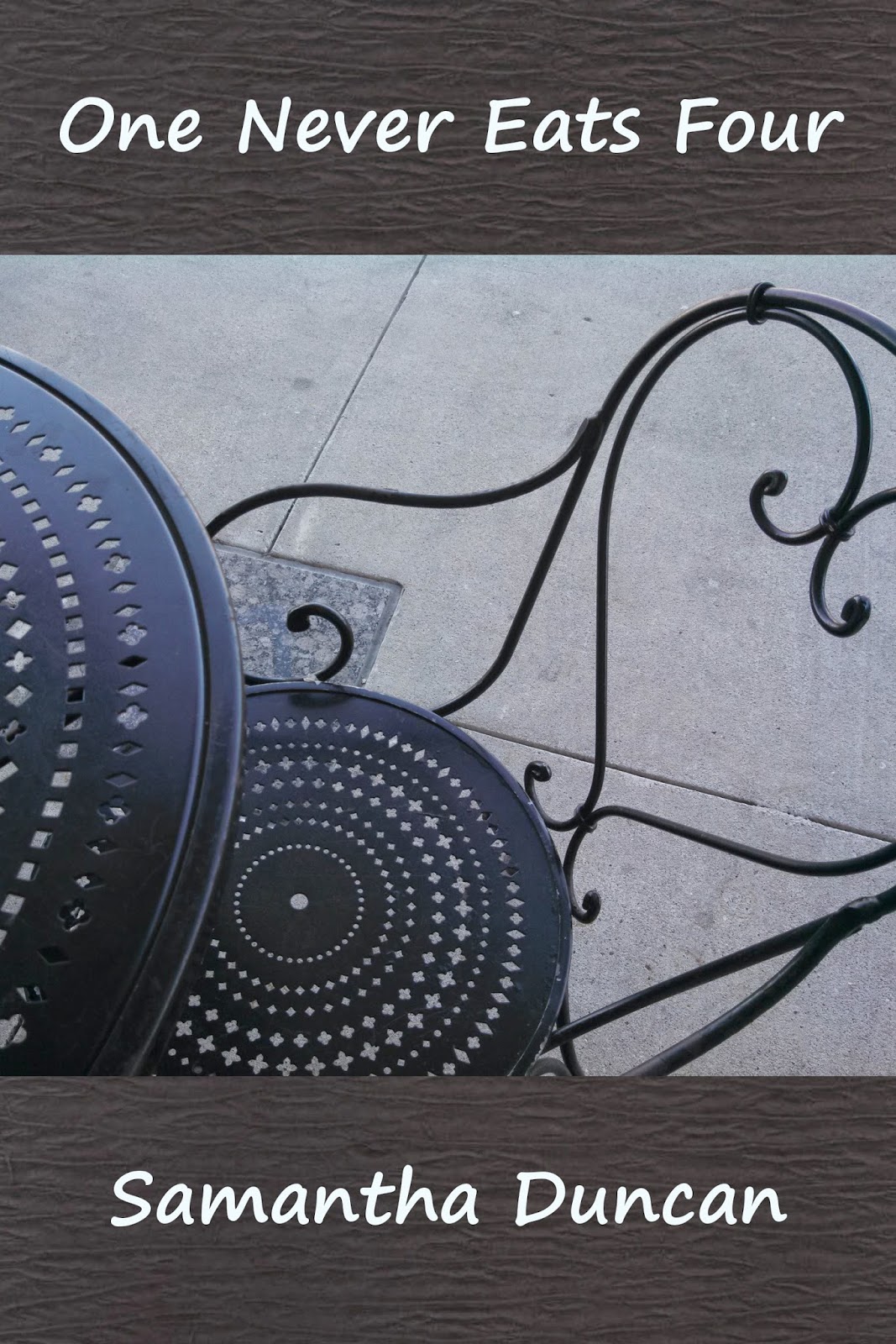 In her short collection of poems One
Never Eats Four from ELJ
Publications, Samantha Duncan offers a scenic journey through the annals of
the poet’s mind. At first, these poems appear loose, the images stacked
together as they randomly cascade at you despite the beauty of the language.
But as one reads on, the poems quickly tie together, existing not as sole
entities, but as a series of interconnected thoughts, thoughts that follow the
patterns of the human mind and narrative existence.
In her short collection of poems One
Never Eats Four from ELJ
Publications, Samantha Duncan offers a scenic journey through the annals of
the poet’s mind. At first, these poems appear loose, the images stacked
together as they randomly cascade at you despite the beauty of the language.
But as one reads on, the poems quickly tie together, existing not as sole
entities, but as a series of interconnected thoughts, thoughts that follow the
patterns of the human mind and narrative existence.
In her poem “Shifts,” Duncan works to translate the patterns
of life, aging, and existence, and does so by casually and artfully commenting
on humanity: “From this life, I don’t want a sonnet./ I can break down boxes
that used/ to house kittens for a paycheck, and/ feel full of Vitamin C.” From kittens
to vitamins, the reader sees life here and is forced to contemplate the meaning
of otherwise menial events. The emptying of a box of kittens has so many
implications as does the consumption of Vitamin C, but what do they mean, what
do they mean here? Thus, as one advances through the pages, the payoff builds,
the images collide, and poetic transcendence is found. We all think about
something, say our shoes and somehow end up engrossed in a memory of that time
we had a splinter in our forefinger when we were eight and the drop of blood it
left on our right sock. Well, these moments, all too human, shape Duncan’s
verse.
As mentioned above, much of the beauty is found in the
language. It is simple, honed with a scalpel, and thus the images bounce off
the page regardless of how connected they initially seem. For example, in “Growth”
the introduction of a home inspection, a horrific side effect of selling one’s
house where a strange person judges the condition of your home, ends in the
discussion of poisoned flowers: “Home inspections permit/ a calendar cadence, a
posture/ improvement. She began to/ forget the flowers I poisoned,/ routine was
left uneaten.” The thoughts flow, they are seamless, and the reader must work
here, must think and connect and imagine. The poetry works on us in only the
way poetry can. It is here that Duncan excels, reminding the reader that
thought, imagination, and emotion are part of the process.
Earlier, in “This Is Not a Well” Duncan employed the same
mastery, this time focusing on the symbolic: “Imaginary water lies where water
was, where/ my ribs are pencils that tickle your brain creases.” These ideas
are desperate, yet connected just the same in a way that does tickle the brain.
Yet Duncan can be overt, as seen in her poem “Fire” where she pens perhaps my
favorite lines of the collection, lines that do a better job than a
two-thousand work short story I’ve written on the same subject: “The hierarchy
of citrus blazing in the front yard,/ hanging on cousin trees, orange, green,
and yellow/ past wives, squeezed to the rinds until fluent in/ regeneration.
Could feed the village, if there weren’t/ so many individual locked doors.
Neighbor houses are/ mute pianos, nearly responsive to seduction.” Duncan
comments on society, the castles we live in, the hidden nature of life, yet she
does so with image based precision, choosing not slam the reader over the head,
but rather to let the reader decipher, consider, and think.
You can purchase the collection here
if interested.
No comments:
Post a Comment